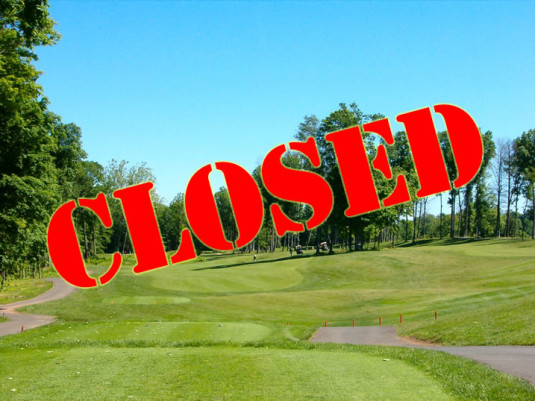
I love golf. And I know many, many people who also love golf. But even those of us who love it admit there are a few issues that tend to drag it down: It’s too slow; too hard; and too expensive. These are inherent to the game – always have been and probably always will be.
But recently, there have been a few additional red flags run up golf’s proverbial flag pole: First, there was the Chinese government enforcing its ban on building new courses, effectively halting industry growth in what was a promising emerging market; Then there was the alarming NGF (National Golf Foundation) report that 400,000 people quit golf last year, supporting the idea that golf participation is shrinking, not growing; and finally, there was the mass layoffs of golf pros at Dick’s Sporting Goods stores last week, suggesting golf (as it stacks up to other recreational activities) is no longer worth investing in.
If all that isn’t grim enough, there’s always the pesky issue of growing the game to the younger generation. I recently put in my two cents on how to do that properly, because many Millennials (or younger) simply don’t/can’t relate to golf. Take a recent comment we received from a 25 year-old:
“I just don’t have time to learn [golf]. I can get to the range to practice once a week, and play once a week, usually the day after I get to the range. It’s just not enough, I quit today because after months of effort I’ve gotten nowhere. I feel bad abandoning my dad, because I was golfing with him, but I refuse to embaress [sic] myself anymore out there and he has friends he golfs with as well. I should add that I’m 25, and I don’t see many young people on the course, mostly grey haired guys 50+. This sport is dying anyway, I don’t see the point in putting a ton of effort into learning a dead game walking, it won’t exist by 2040.”
Granted, this is just one person’s opinion, but it sounds all too familiar. The younger generation only wants to play to win. And if they can’t excel at golf it’s not worth playing at all. Lost on them is that you don’t have to be good at something to love it. The comments from the 25-year-old above help prove this point – that he quit because he wasn’t good at golf – even if it meant spending less time with his father.
And what of golf being a thing of the past in just a short quarter century? Sounds a bit far-fetched…Or is it? I mean, the notion of every course being gone in 25 years is obviously ridiculous. But that doesn’t mean golf couldn’t be a shell of what it is now…especially if current trends continue. It’s not impossible to imagine a future where golf has regressed back into a small, elitist game – golf pre-1960 if you will – back before Arnie and Jack and television and new equipment technology opened golf to the masses – and more recently before Tiger and the new course explosion that grew this game to what it is today (over grew it, according to many industry sources).
As much as we don’t want to consider that outcome, it would be foolish to ignore it. More courses are closing than opening; hundreds of thousands are quitting and big retail seems to be giving up on the game. Perhaps NGF is right – that this is just market correction from several years of over-growth. But if that’s the case (and the economy continues to struggle), at what point does the market correction end? And perhaps more importantly, what can/should we do about it in the meantime?
Maybe we shouldn’t do anything? Maybe we should just let the market correct itself and hope that when the dust settles, golf will be problem-free. Or maybe we should act now to ensure golf actually has a future once that dust settles?
I truly believe the solution is to market the fun aspect of this game, rather than being so focused on making people play better. From the teaching pros, to the equipment and apparel companies, to (and perhaps most importantly) the media – there needs to be this fundamental shift in our approach to golf. Here’s the thing – not everyone is going to be good at golf. In fact, most of us are going to stink. So let’s embrace that. It’s our job to show the younger generation how fun golf is regardless of what your score is. And it’s time we veterans of the game learn that lesson too – Isn’t walking the fairways on a beautiful day with your friends at least slightly more important than the final number you write down on your scorecard?
If you said no, perhaps this game truly is dying.




Perhaps the reason golf is perceived as a dying sport is due to the presence of a demographic and wealthy barrier. Since golf is an expensive sport to partake in, there is already an automatic glass ceiling for low-income ethnicities. As a Mexican golfer, I have encountered financial problems regarding golf equipment and green fees. Luckily, I’ve found a way to evade these problems with support from programs such as The First Tee. However, not many people with my circumstances have the opportunity to pursue the game of golf. With more opportunities for underprivileged golfers, the sport of golf can be revived.
Like any other industry, it’s not dying, but evolving to meet the new generations expectations. The computer age has changed our culture toward instant gratification, convenience & economy. Today’s big golf course mentality suffers from time, cost & difficulty issues and will be significantly altered for efficiency in the near future.
Look for smaller golf facilities to become mainstream, as the older era courses fade in popularity due to attrition of older golfers & non-sustainable eco-requirements.
Golf is dying because there are very few good teachers.
Let it die. Its boring. No one cares. I played golf on 4 occasions at elite courses in FL and CA and was bored to death. And NO ONE walks the fairways, golf carts only.